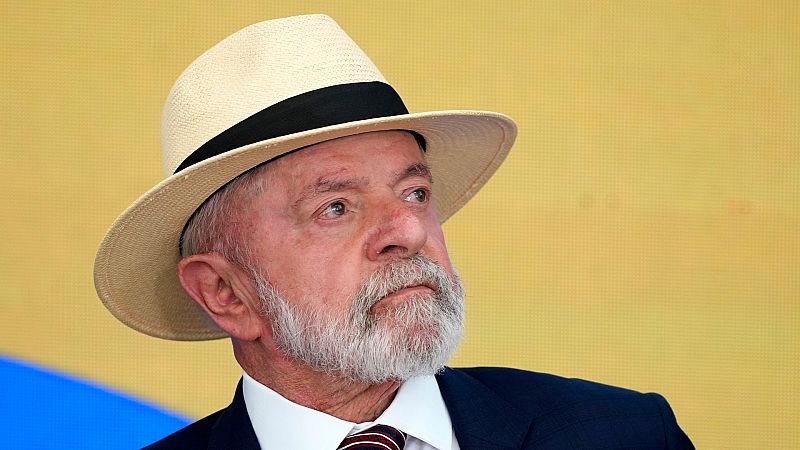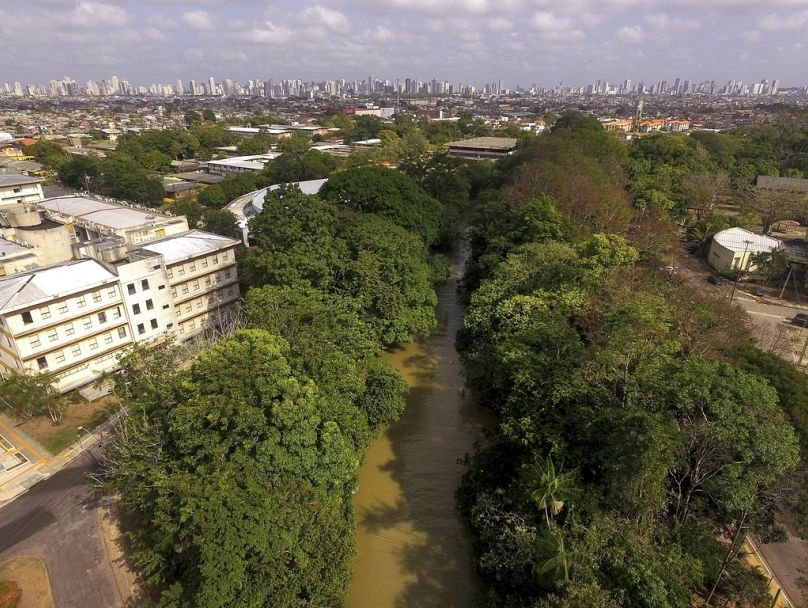Brazil’s Lula defends oil exploration in the Amazon as a way to finance green energy

Brazil’s President Luiz Inácio Lula da Silva has backed more oil exploration despite his country hosting crucial climate talks later this year.
Lula has been pressuring the country’s environmental regulators to approve exploratory drilling near the mouth of the Amazon River, despite them previously saying no. He says revenue from this new fossil fuel supply could help finance a transition to green energy.
The site of this exploration is around 160km off the east coast of Brazil. It is located in a region known as the Equatorial Margin, which runs from Rio Grande do Norte to Amapá, where there are thought to be significant oil and gas fields.
A license for exploratory drilling was rejected by Ibama, the country’s environmental regulator, in 2023. It said this was due to a weak plan for the protection of wildlife - a spill at the site would have devastating effects on one of the most biodiverse regions of the world.
State-owned oil company Petrobras has appealed the rejection and is now waiting for a decision.
Oil exploration in the mouth of the Amazon
Lula told Brazilian radio station Diario that he wants it to be explored, “but before exploring, we need to research and see if there is oil and how much oil there is.”
He added that it felt like Ibama was “working against the government” despite being a government agency.
“We will follow all the necessary procedures to ensure no harm to nature, but we can’t ignore the wealth beneath us and choose not to explore it - especially because this wealth will provide the funds for the much-needed and long-awaited energy transition,” Lula said.
Brazil is a major oil-producing country and is increasingly exporting what it produces. Government figures show that around 90 per cent of Brazil’s electricity comes from renewable sources, mostly hydropower.
“The government spreads disinformation when it says it needs more oil to finance the energy transition,” said Ilan Zugman, 350.org’s director for Latin America and the Caribbean.
“This narrative is simplistic and disrespectful. To put it in perspective, more than 80 per cent of the tax incentives offered by the Brazilian federal government for the energy sector are directed towards fossil fuels.
“The Brazilian federal government invests more than $15 billion (€14.3 billion) in subsidies for fossil fuels.”
COP30 host city Belém, at the mouth of the Amazon River, is just a few hundred kilometres from the proposed drilling site. Critics say new oil exploration risks harming the country’s reputation ahead of the UN climate summit.
‘We won’t accept drilling at the Amazon Basin’
Lula was greeted by protesters when he arrived in Belém last Friday to announce federal investments for COP30.
Environmental activists from 350.org, the Amazonian Working Network (GTA), the Marajó Observatory, the Pororoka collective and Engajamundo unfurled a banner that read ‘Destroying the Amazon for oil and gas is not worth the price’.'
“Oil exploration at the mouth of Amazon is a disregard for the human rights of local communities, including the right to land, water and health,” said the executive director of Marajó Observatory, Valma Teles.
“For the government to rush through a project full of socio-environmental risks and which has no popular legitimacy in the territories in order to avoid getting burned at COP30 is to make a fool of us, the peoples of the forests and waters, and the whole world.“
Suane Barreirinhas, an activist from Vila da Barca, a suburb of Belém where riverine people live, added that COP30 should be used to magnify the voices of those who “feel the climate crisis on their skin”.
“Let this space, our river, be the stage for our fight against this “development” that affects us. We’ve already seen the Belo Monte disaster and we won’t accept drilling at the Amazon Basin now.”
Yesterday


